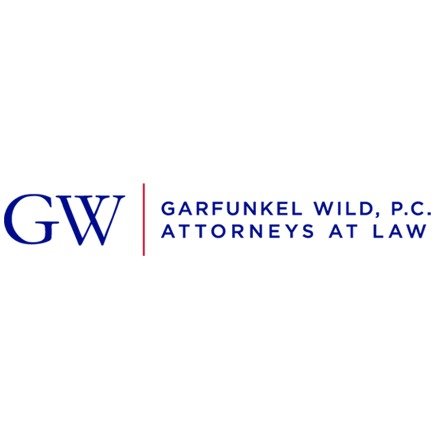Best Private Equity Lawyers in New York
Share your needs with us, get contacted by law firms.
Free. Takes 2 min.
Or refine your search by selecting a city:
List of the best lawyers in New York, United States
About Private Equity Law in New York, United States
Private equity (PE) law refers to the rules, regulations, and legal practices that govern investments in privately held companies or those being taken private. In New York, private equity is a critical part of the financial sector, as the state is home to many world-leading PE firms as well as a robust network of legal professionals and regulatory agencies. New York’s legal landscape is unique due to its business-friendly laws, experienced courts, and close proximity to Wall Street. Private equity transactions can involve buying and restructuring companies, raising and managing investment funds, and facilitating mergers and acquisitions.
Why You May Need a Lawyer
Engaging in private equity transactions is complex, often involving large sums of money, intricate contractual arrangements, and regulatory scrutiny. Here are some common scenarios in which you might need a private equity lawyer in New York:
- Structuring or participating in a private equity fund
- Negotiating investments or buyouts
- Drafting or reviewing partnership agreements
- Handling mergers, acquisitions, or dispositions of portfolio companies
- Ensuring compliance with federal and New York state securities laws
- Managing disputes among investors, partners, or managers
- Advising on tax optimization and risk management strategies
- Facilitating exits through sales or public offerings
Due to the sophistication and high stakes involved, legal advice is essential for protecting your investment, minimizing risk, and ensuring the transaction complies with all relevant laws.
Local Laws Overview
New York has its own regulatory environment that affects private equity activities:
- Business Corporation Law (BCL) and Limited Liability Company Law (LLC Law) - These govern the formation, operation, and dissolution of business entities used for private equity investments.
- New York State Securities Laws (the Martin Act) - The Attorney General enforces this law to protect investors from fraud in the offer, purchase, or sale of securities, including interests in private equity funds.
- Contract Laws - New York is often chosen as the governing law for private equity agreements due to its sophisticated courts and well-developed contract law.
- Taxation - Both state and city taxes can impact fund structures and profit distributions. Advisors help optimize these structures under local rules.
- Federal Laws - Since New York is a major financial center, federal rules like the Securities Act of 1933, Investment Advisers Act of 1940, and related SEC regulations play a significant role.
Understanding these local statutes and how they interact with federal laws is critical to executing compliant and profitable private equity transactions.
Frequently Asked Questions
What is private equity?
Private equity refers to investments made into private companies or in public companies that are taken private through buyouts. Investors typically provide capital in exchange for equity (ownership) and help drive growth or turnarounds.
Who regulates private equity in New York?
Private equity in New York is regulated at both the state level (primarily by the New York Attorney General under the Martin Act) and federal level (primarily by the Securities and Exchange Commission).
What legal structures are commonly used for private equity funds?
Funds are often structured as limited partnerships or limited liability companies. These structures provide liability protection and tax advantages to investors and fund managers.
Do private equity funds have to register with regulators in New York?
Depending on the size and nature of the fund, as well as sources of capital, registration may be required with the SEC and periodic filings may be needed with New York state authorities.
What are common legal risks in private equity transactions?
Legal risks include breaches of fiduciary duty, disputes over fund management, violations of securities laws, tax compliance issues, and failure to follow contractual terms in buyouts or exits.
Can individuals invest in private equity funds?
Most private equity funds are limited to accredited investors, which generally means high net worth individuals and institutional investors. There are strict eligibility requirements under securities laws.
How are private equity deals typically structured?
Deals often involve a mix of debt and equity, complex purchase agreements, earn-outs, management incentives, and negotiated governance terms. Each step requires careful legal documentation.
What are the main steps in a private equity buyout?
The typical process includes identifying a target, conducting due diligence, negotiating terms, drafting agreements, arranging financing, closing the deal, and eventually planning an exit.
What should I look for when choosing a private equity lawyer?
Look for attorneys with experience in private equity fund formation, deal structuring, regulatory compliance, and relevant New York law. Industry reputation and client references can be helpful.
How long do private equity deals take in New York?
Timing varies widely. Simple investments might close in a few weeks, while complex leveraged buyouts or fund formations can take several months due to negotiations, regulatory checks, and due diligence.
Additional Resources
If you need further assistance or want to deepen your understanding, consider these resources:
- New York State Attorney General - Investor Protection Bureau
- Securities and Exchange Commission (SEC) - Investment Funds Division
- New York State Bar Association - Business Law Section
- American Investment Council (AIC)
- Practising Law Institute (PLI) - Private Equity Law Resources
These organizations offer guidance, compliance information, and referrals to qualified professionals.
Next Steps
If you believe you need legal support for a private equity matter in New York:
- Consult with a qualified private equity attorney familiar with New York laws and the broader regulatory landscape
- Gather relevant documents, such as fund offering materials, partnership agreements, and correspondence
- Prepare a summary of your goals, questions, and any concerns you have before your first meeting
- Consider reaching out to professional networks or industry associations for referrals
- Stay informed about regulatory developments by subscribing to updates from relevant government agencies
Taking these steps ensures you are well prepared to navigate the complexities of private equity transactions in New York and protect your interests throughout the legal process.
Lawzana helps you find the best lawyers and law firms in New York through a curated and pre-screened list of qualified legal professionals. Our platform offers rankings and detailed profiles of attorneys and law firms, allowing you to compare based on practice areas, including Private Equity, experience, and client feedback.
Each profile includes a description of the firm's areas of practice, client reviews, team members and partners, year of establishment, spoken languages, office locations, contact information, social media presence, and any published articles or resources. Most firms on our platform speak English and are experienced in both local and international legal matters.
Get a quote from top-rated law firms in New York, United States — quickly, securely, and without unnecessary hassle.
Disclaimer:
The information provided on this page is for general informational purposes only and does not constitute legal advice. While we strive to ensure the accuracy and relevance of the content, legal information may change over time, and interpretations of the law can vary. You should always consult with a qualified legal professional for advice specific to your situation.
We disclaim all liability for actions taken or not taken based on the content of this page. If you believe any information is incorrect or outdated, please contact us, and we will review and update it where appropriate.
Browse private equity law firms by city in New York
Refine your search by selecting a city.

















